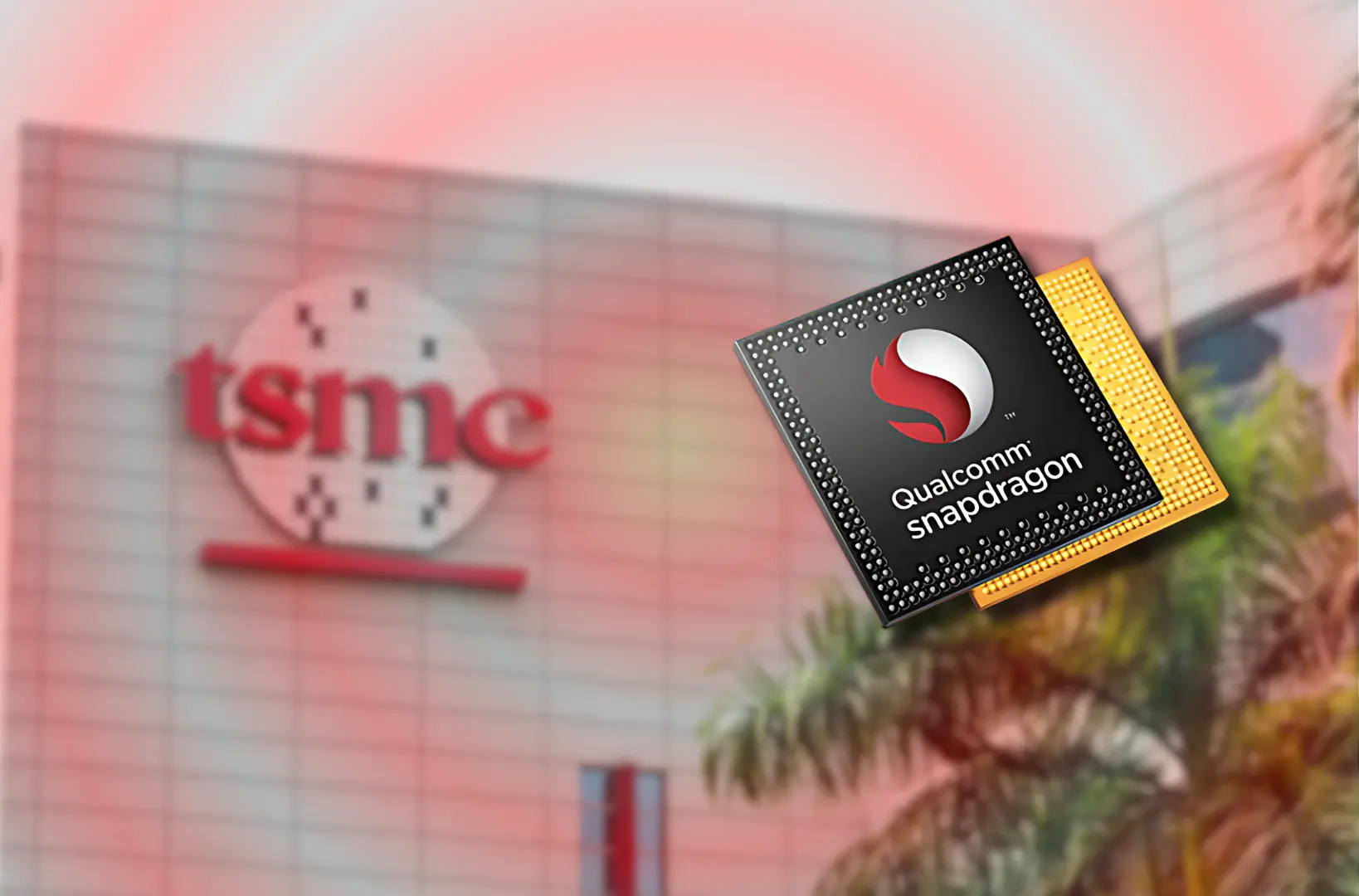The global semiconductor industry is at a pivotal moment, with nations and corporations recognizing the urgent need to secure supply chains, accelerate technological advancements, and drive innovation. In this landscape, Taiwan Semiconductor Manufacturing Company (TSMC), the world’s largest contract chipmaker, has announced a historic $100 billion investment aimed at expanding its manufacturing footprint in the United States. This strategic move is set to reshape the semiconductor industry, reducing America’s reliance on foreign chip production, fostering technological self-sufficiency, and bolstering national security.
The announcement has been met with widespread acclaim, with Qualcomm CEO Cristiano Amon leading the chorus of approval. Describing the investment as “music to our ears,” Amon emphasized the critical role this initiative will play in ensuring supply chain resilience, fueling next-generation innovation, and positioning the U.S. as a leader in semiconductor technology. With semiconductors powering everything from smartphones and AI-driven systems to autonomous vehicles and advanced computing, TSMC’s investment marks a defining moment in the future of the tech industry.
TSMC’s Investment and Its Significance
TSMC’s $100 billion investment represents one of the most ambitious expansions in the semiconductor sector, aimed at strengthening U.S. chip production capacity and addressing long-standing supply chain vulnerabilities. The company’s commitment aligns closely with Washington’s CHIPS Act, a government initiative designed to revitalize domestic semiconductor manufacturing and enhance technological competitiveness.
This massive investment will be channeled into building state-of-the-art fabrication plants (fabs), incorporating cutting-edge lithography technologies, and supporting research and development in semiconductor advancements. By leveraging its expertise, TSMC aims to bridge the gap between semiconductor demand and production capacity, ensuring that industries reliant on high-performance chips—such as artificial intelligence, automotive, 5G, and aerospace—have a stable and secure supply of advanced semiconductors.
Additionally, this move addresses one of the most pressing geopolitical concerns: semiconductor dependency. The vast majority of advanced chip manufacturing has traditionally been concentrated in East Asia, particularly Taiwan and South Korea. With global tensions rising, the need for geographically diversified semiconductor production has never been greater. By strengthening its U.S. presence, TSMC is mitigating the risks associated with supply chain disruptions, ensuring business continuity for technology giants like Qualcomm, Apple, and Nvidia.
Strengthening U.S. Semiconductor Manufacturing
For decades, the United States has remained at the forefront of semiconductor design and innovation. However, manufacturing capabilities have largely been outsourced, leaving the country vulnerable to external disruptions. TSMC’s investment signifies a paradigm shift in the global semiconductor landscape, where U.S.-based production regains momentum, reducing dependency on offshore fabs.
This initiative not only reinforces supply chain security but also fosters an ecosystem where semiconductor research, fabrication, and talent development thrive domestically. The expansion of U.S.-based fabs will empower companies like Qualcomm to develop and deploy cutting-edge technologies faster, without the bottlenecks caused by geopolitical uncertainties or production slowdowns.
Furthermore, the localization of semiconductor manufacturing enables tighter integration between design and fabrication teams, fostering innovation at an accelerated pace. With manufacturing capabilities closer to home, companies can iterate designs more efficiently, experiment with new architectures, and push the boundaries of performance and efficiency in semiconductor technology.
Qualcomm’s Perspective: A Game-Changer for the Industry
Qualcomm, a global leader in semiconductor technology and wireless communications, has expressed strong support for TSMC’s investment. CEO Cristiano Amon highlighted that this initiative will be instrumental in shaping the next era of semiconductor advancements, allowing U.S.-based tech firms to harness the benefits of a stable, cutting-edge chip supply.
Enhancing Supply Chain Stability
One of the most pressing concerns in the semiconductor industry has been the instability of supply chains. From the disruptions caused by the COVID-19 pandemic to escalating geopolitical tensions, companies have struggled with fluctuating chip availability, affecting production timelines and innovation cycles.
By expanding production capacity in the U.S., TSMC is directly addressing these challenges. Qualcomm, which heavily relies on advanced semiconductor technology for its Snapdragon processors and AI-driven solutions, stands to gain significantly. A more predictable and geographically secure supply of chips means fewer production delays, enhanced reliability, and increased efficiency in product development.
Driving Technological Innovation
Semiconductors are the backbone of modern technology, powering everything from AI-driven computing and edge processing to 5G networks and next-generation consumer electronics. Qualcomm’s continued innovation in these areas depends on a seamless supply of advanced chips.
TSMC’s investment provides the necessary infrastructure to support Qualcomm’s research and development efforts, facilitating faster time-to-market for groundbreaking products. Whether it’s developing more efficient AI chips, optimizing power consumption for IoT devices, or pushing the limits of mobile computing, a robust semiconductor manufacturing ecosystem in the U.S. will empower Qualcomm to stay ahead of the curve.
The Broader Impact on the U.S. Economy
Beyond technological implications, TSMC’s investment is poised to have a profound economic impact. With new semiconductor fabs being built, thousands of high-tech jobs will be created, spanning roles in engineering, research, production, and logistics. This surge in employment opportunities will benefit local economies and contribute to workforce development in the semiconductor sector.
Additionally, the investment will catalyze growth in ancillary industries, including semiconductor equipment manufacturing, materials science, and advanced chip packaging solutions. By fostering a robust semiconductor ecosystem, the U.S. can attract further investments, stimulate innovation, and position itself as a dominant force in the global technology landscape.
The Road Ahead: Challenges and Opportunities
While the benefits of TSMC’s investment are substantial, challenges remain. Semiconductor fabrication is an incredibly complex and resource-intensive process, requiring massive infrastructure, skilled talent, and extensive supply chain coordination.
One of the primary hurdles will be workforce development. The U.S. semiconductor industry faces a shortage of highly skilled professionals, including chip designers, process engineers, and materials scientists. Addressing this gap will require collaborative efforts between industry leaders, academic institutions, and government agencies to nurture the next generation of semiconductor talent.
Furthermore, the global semiconductor market remains dynamic, with evolving trade policies, geopolitical shifts, and intense competition from other regions. To maximize the benefits of TSMC’s investment, continuous policy support, strategic partnerships, and sustained innovation will be essential.
Conclusion
TSMC’s $100 billion investment in U.S. chipmaking represents a watershed moment in the semiconductor industry, with far-reaching implications for technology, economic growth, and national security. Qualcomm CEO Cristiano Amon’s enthusiastic endorsement underscores the transformative potential of this initiative, signaling a new era of supply chain resilience and innovation-driven progress.
As the demand for semiconductors continues to skyrocket, this investment will play a pivotal role in fortifying the U.S. semiconductor ecosystem, reducing dependency on foreign production, and empowering tech companies to develop next-generation solutions. The road ahead is filled with both challenges and opportunities, but one thing is clear: the future of semiconductor manufacturing is being reshaped, and Qualcomm, TSMC, and the broader tech industry are at the forefront of this revolution.
Suggested Reads
DigitalOcean Expands to Pakistan – New HQ at COLABS
Manus Isn’t China’s Second ‘DeepSeek Moment’—Here’s Why
Google Pay Launches in Pakistan: A Game Changer for Digital Payments

Burhan Ahmad is a Senior Content Editor at Technado, with a strong focus on tech, software development, cybersecurity, and digital marketing. He has previously contributed to leading digital platforms, delivering insightful content in these areas.







